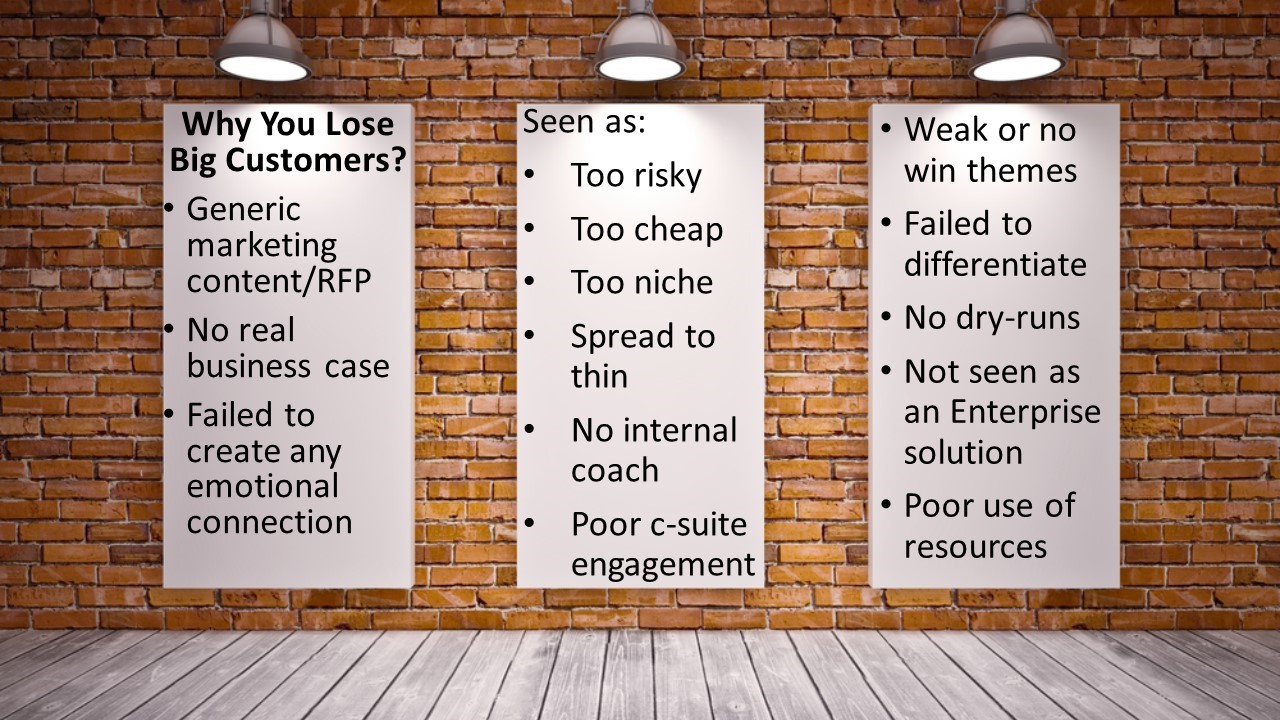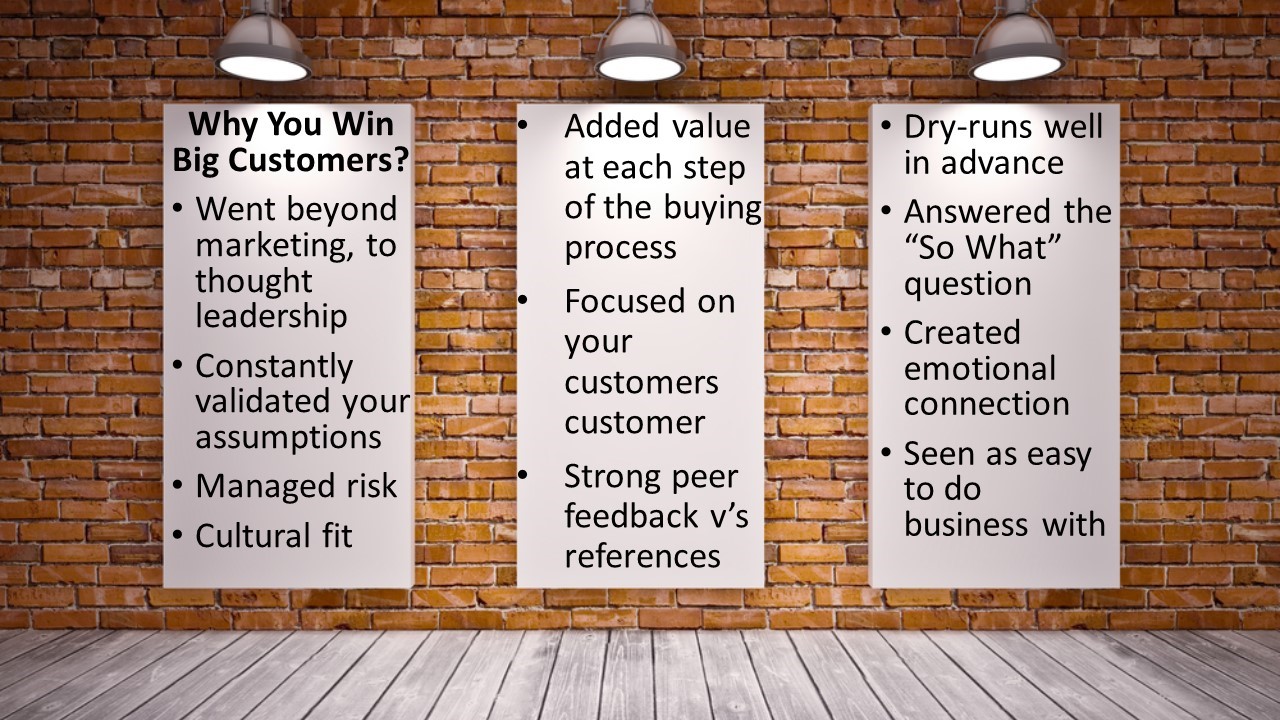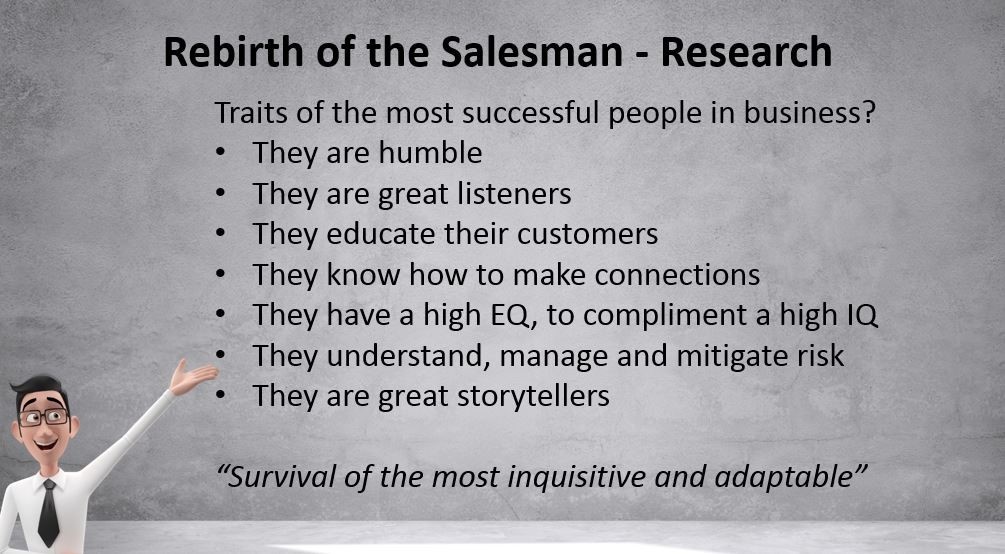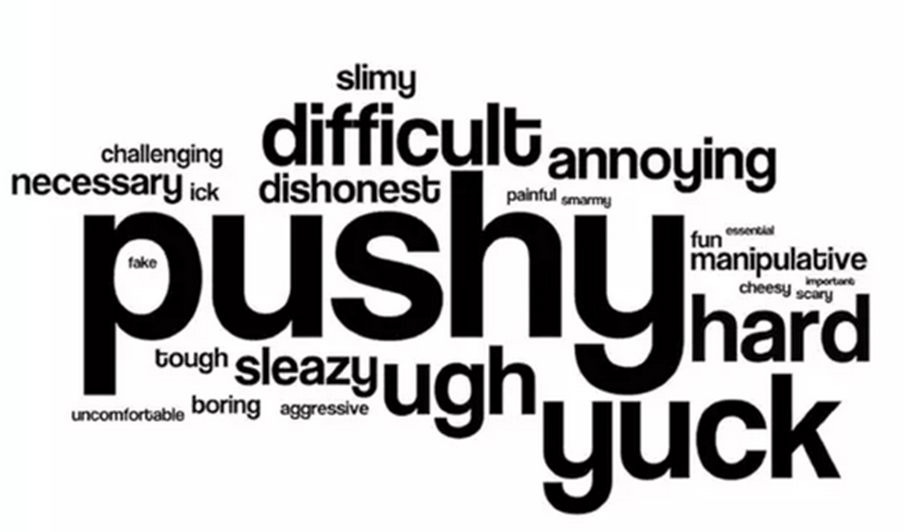I’m either exactly the right person, or completely the wrong person, to write an article about how to overcome stress in sales, given my experiences over the past 20 years in the B2B sales industry … I’ll let you be the judge.
What I can say without fear of contradiction, is that being a sales professional can be one of the most stress-inducing, gut-wrenching and soul-destroying career paths that anyone can pursue. It can also be a lucrative, rewarding and diverse career path, but that’s a topic for another day!
Many of you reading this post will have a wide variety of stressors hitting you square between the eyes every day, making it hard to roll out of bed in the morning and even harder to get a good night’s sleep. This article is for you and more than anything, I hope one or two of the strategies I share will help alleviate your stress levels or release the pressure valve just a little bit. So let’s dive in.
Sales doesn’t have to be terrifying: 5 strategies to reduce stress
1. Stressor: Sales targets, quotas, KPIs
Ah, sales quotas, don’t we just love them! Sometimes annual, often quarterly, monthly or even weekly. Sometimes based on logic, fact and market opportunity, more often based on fantasy, flawed logic and pulled from the nether regions of a senior leader somewhere. Sales targets can come to define your success or failure as a sales professional, but what can you really do to reduce the stress of these all important numbers?
Strategy: Get a seat at the table
Ideally you need a seat at the table when your sales target is being decided or at a minimum, some input into the process. Like so many things in sales, the more discovery, research and evidence you can present in this discussion the better, in terms of influencing the final sales quota you receive.
Think outside the box when compiling this information – analyst trend reports, prior year sales figures for your own business and your competition, if available. Speak to current customers and prospects to gauge their sentiment for the year ahead. Read their annual reports, understand the industry trends, don’t just leave your success to chance.
Always remember a sales quota doesn’t exist in isolation. The size of your target market, the mix of customers, prospects and white space, the industry vertical or product you are selling, will all have an impact on your success. Make sure to factor these into your influence requests.
2. Stressor: Lack of control or autonomy
There are so many things outside our control as sales professionals, it can sometimes seem overwhelming. Examples of uncontrollable factors include the sales territory you’re assigned to, how much access you get to internal resources, the flow of new leads, or a personal favourite of mine, why you actually won or lost a deal in the first place.
This last one, why we win and lose the key deals we pitch for, used to keep me up at night pacing the hallway. I’d agonize over buying decisions long since passed and replay each step of the sales cycle in my head. Eventually I decided I’d had enough, so in 2011 I quit my lucrative B2B sales job and set up a company to solve this issue once and for all.
Strategy: The truth will set you free
The way I figured it, if you’ve done a good job through the sales cycle, you’ve earned the right to a proper debrief with your customer at the end of the process and some clarity on what actually happened. As it turned out I was right, customers were only too happy to share their feedback (with a few important caveats) and what they had to say was often fascinating, sometimes shocking, but never dull.
Here’s a quick example of the sort of insights you can extract, if you’re open to some first hand, unfiltered customer feedback. First let’s explore some of the key reasons we lose big deals, through the eyes of our customers:

If you’ve been in the sales world for a while, nothing in this image will shock you, but it may give you a few worthwhile reminders on what not-to-do. Now let’s take a look at why we win the big deals we pitch for, again from the perspective of our customers.

3. Stressor: Lack of Job Security
‘You’re only as a good as your last quarter’ is a sales truism that’s been doing the rounds for as long as I can remember. This comment reflects the fact that no matter how successful a salesperson you are, job security in sales has always been measured in months and quarters, rather than years or decades, as it is in most other professions.
Unfortunately sales performance is no longer the only determining factor for survival. As Forrester and many analyst organisations have predicted, B2B sales jobs around the world are in sharp decline, with some estimates suggesting a million or more jobs will disappear by 2020.
Strategy: Invest in brand ‘you’
When I was in my early twenties, my dad taught me an extremely important lesson, which took me many years to fully understand. He explained that first and foremost I should be loyal to myself and my career path, before I was loyal to a brand, company or manager. He went on to explain that we are all resources in the businesses in which we work and as such, we are valuable and dispensable in equal measure. I gradually learned to understand the wisdom my dad imparted all those years ago and just how right he was.
It would be easy to succumb to the stress of building a sustainable career and providing for your family in the rapidly evolving B2B sales industry, but take it from me, all is not lost. In my countless hours of customer discussions and interviews whilst researching my book Rebirth of the Salesman, I learned some interesting lessons about what customers really value in the salespeople they engage with. These lessons have profoundly influenced the skills I now see as most important to achieving consistent sales success.

4. Stressor: The rapid pace of industry change
Like so many other industries, the world of B2B sales has shifted on its axis in recent years. This change has been as sudden as it was profound, and it’s left many businesses and sales professionals stranded in no-man’s land, desperately seeking a life-buoy to hold on to. At its simplest, the balance of power has shifted from sellers to buyers.
In a very short space of time we’ve moved from:
- buyer beware (caveat emptor) to seller beware (caveat venditor)
- tangible products to Everything-as-a-Service
- complex and cumbersome to simple and agile
- product led to outcome led
- money now/value later to value now/money later.
Strategy: Become a disruptor, don’t get disrupted
The old sales skills and behaviours that have served us well for many years are rapidly becoming obsolete, as customer self-service, artificial intelligence and as-a-service offerings increasingly become the norm. Instead of worrying about your imminent demise, focus on exchanging old behaviours for new and re-tooling yourself for the next B2B paradigm shift.
How can you do that, well here’s a few places to start:
- Stop avoiding social media: Learn how to communicate, educate and engage with your audience this way, but don’t allow it to replace email, phone and face-to-face interactions.
- Curate and share content: Content that relates to your industry, your target audience or your area of passion/expertise. Become known for something, otherwise you’ll be known for nothing.
- Offer value for free: Become a conduit for ideas and insights from within your business out into the public arena. Often we hide our value under a bushel, for fear that our competitors might get wind of it. Instead we need to give away subsets of our value for free, in the hope prospective customers will value it and in turn reciprocate with their interest and attention.
- Invest in your brand: Recognise that your personal/professional brand is your responsibility and treat it accordingly. To abdicate the responsibility of your personal brand to a HR, marketing or inside sales function, is to risk your entire career.
- Take the occasional risk: Don’t be afraid to go-out on a limb sometimes, remember that’s where the fruit is!
5. Stressor: The need to compromise your ethics or ideals to succeed in sales
In his book To Sell Is Human, Daniel Pink conducts a fascinating exercise with members of the public. He asks them to think of the first word that comes into their heads, when he says the term ‘sales’ or ‘salesperson’.
He then took the responses he received and turned them into the word cloud you see below. The bigger the word, the more times this response was given by the group of survey respondents. You have to look pretty hard at this word cloud to find any positive terms. Yet as we all know without sales, every business would shut down, no bills would get paid and the whole economic system would quickly grind to a halt.
Strategy: Lead with people and purpose, not product and price
The writer CS Lewis famously said that, “Integrity is doing the right thing, even when no one is watching.” In the sales industry, the one thing that stays with you throughout your career, as you change roles, companies and even industries, is your reputation. The best strategy that I’ve encountered for maintaining your integrity is to be very clear on your values, personal standards and where the invisible line in the sand exists.
- Then when a manager asks you to push a customer to sign when they are obviously not ready, you’ll have the courage of your convictions to say no.
- When a senior leader in the business decides not to pay you on a deal because they feel it closed too easily, you’ll have the strength of character to call them to account.
- When a customer asks you to buy them a gift in exchange for making a buying decision in your favour, you’ll hear the alarm bells ringing in your head and know exactly what to do.
Honorable mentions
Any list of sales stress-factors will be personal. I thought it might be fun to include a few of the other stress-inducing situations that made it onto my short list, in case they strike a chord:
1. Impostor syndrome
That feeling that almost all of us experience at some point (and possibly at regular intervals) during our career, when we know without a shadow of a doubt that we’re out of our depths!
Top tip: Everyone feels that way at least some of the time, don’t let it define you or hold you back.
2. Compliance, admin, internal politics
When you first move into a sales role, you think that selling some stuff is where most of the stress is … how innocent and naive! Hardened sales pros know that the real stress is the internal selling, politicking and horse-trading required inside the four walls of your own business.
Top tip: Build strong internal relationships, over-communicate to key stakeholders, forecast as accurately as you possibly can and where possible, steer clear of the office politics, in favour of time with your customers.
3. The lure of the lifestyle
An old sales leader I knew told me his favourite type of salesperson was married, divorced and re-married, keeping two households afloat and needing to make a very significant sum of money each year, just to keep their head above water. That way he knew exactly how committed they were and that he’d always get his pound of flesh.
Top tip: Shocking as this may sound, a large number of salespeople get hooked on the drug of big paydays and commissions and allow their lifestyles to keep pace or even surpass their earnings potential. It may sound boring, but creating a buffer, not assuming that every month, quarter or year will be equally lucrative, is a great way to reduce stress and avoid ending up in a compromising financial position.



Recent Comments